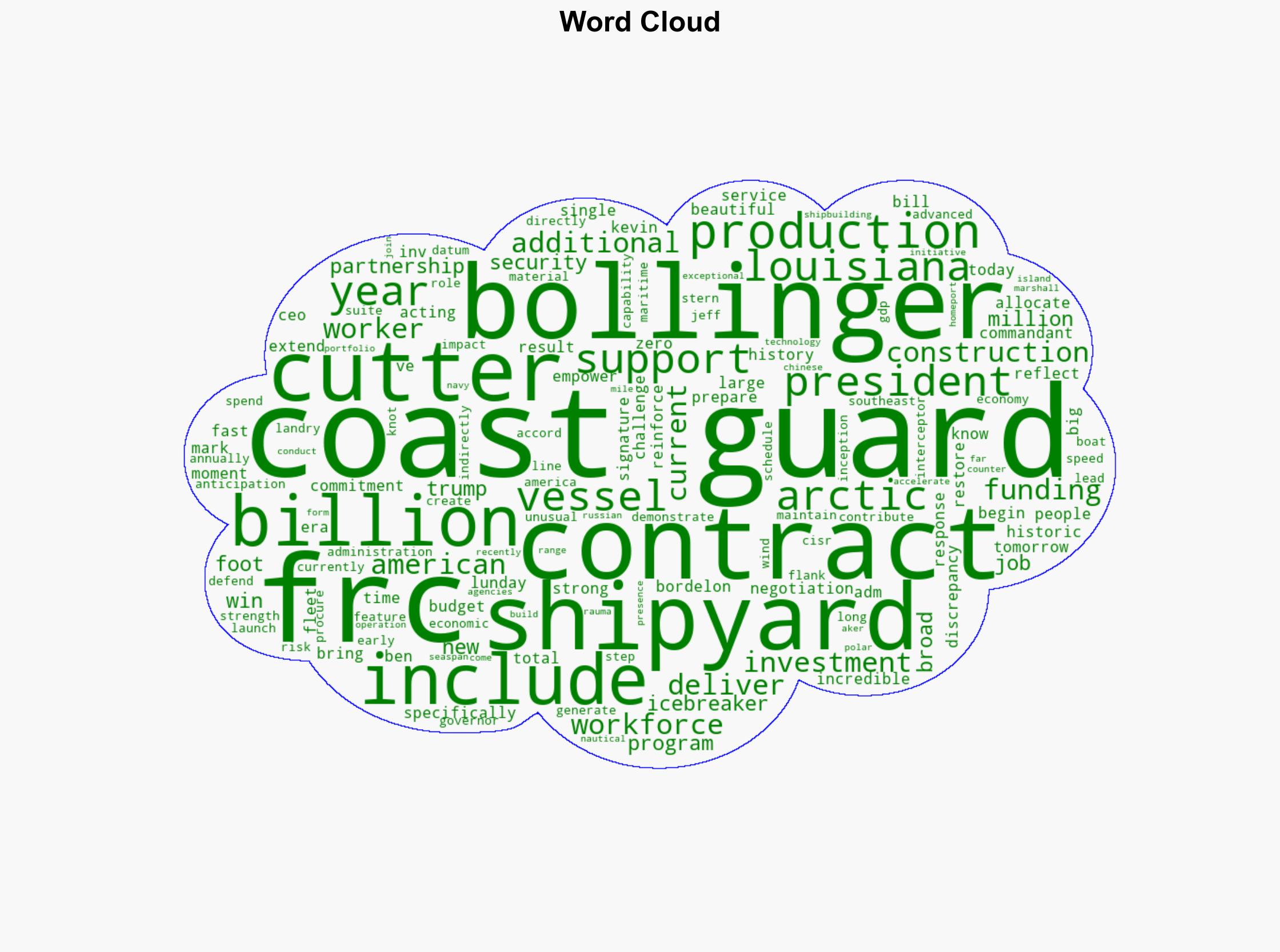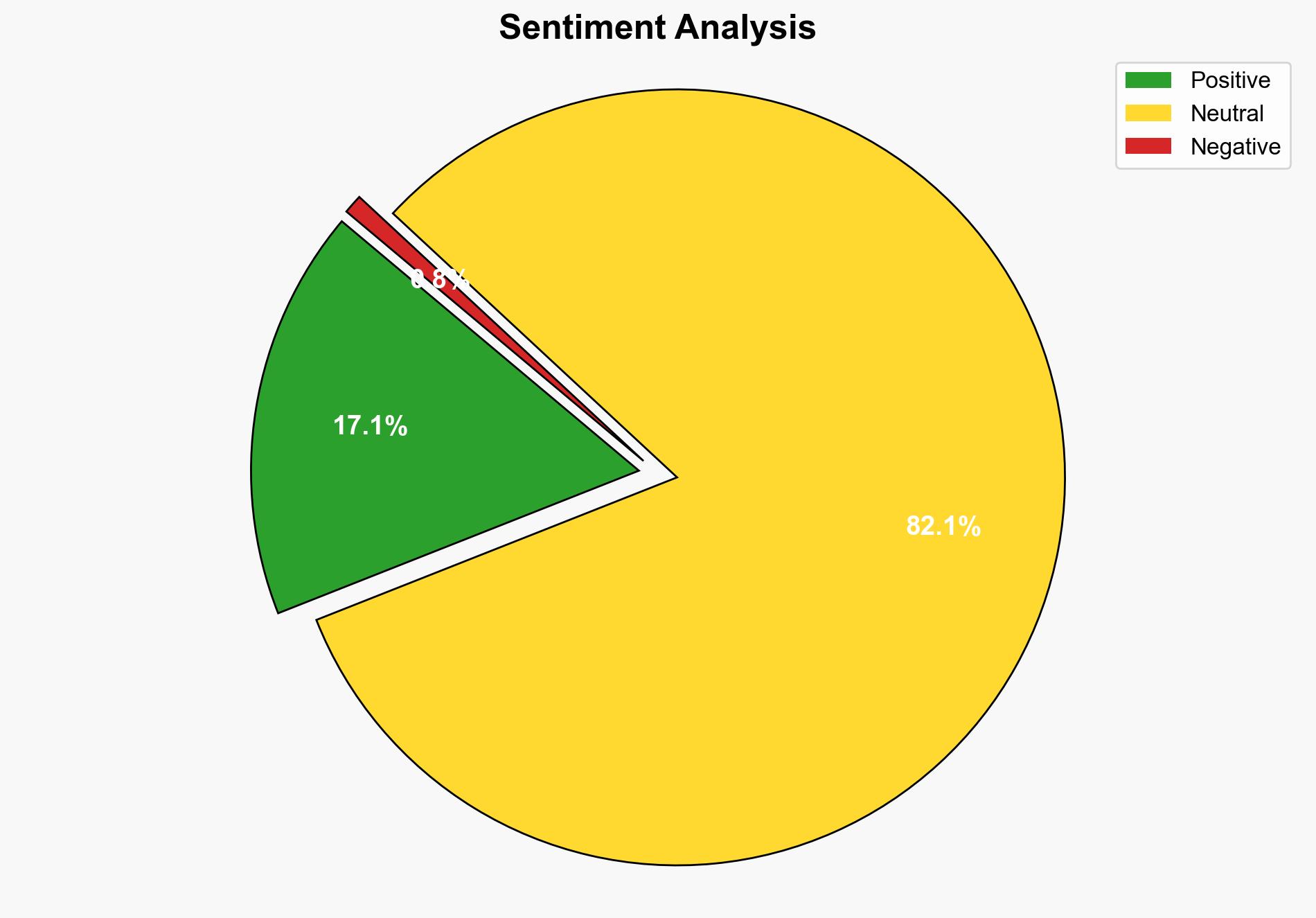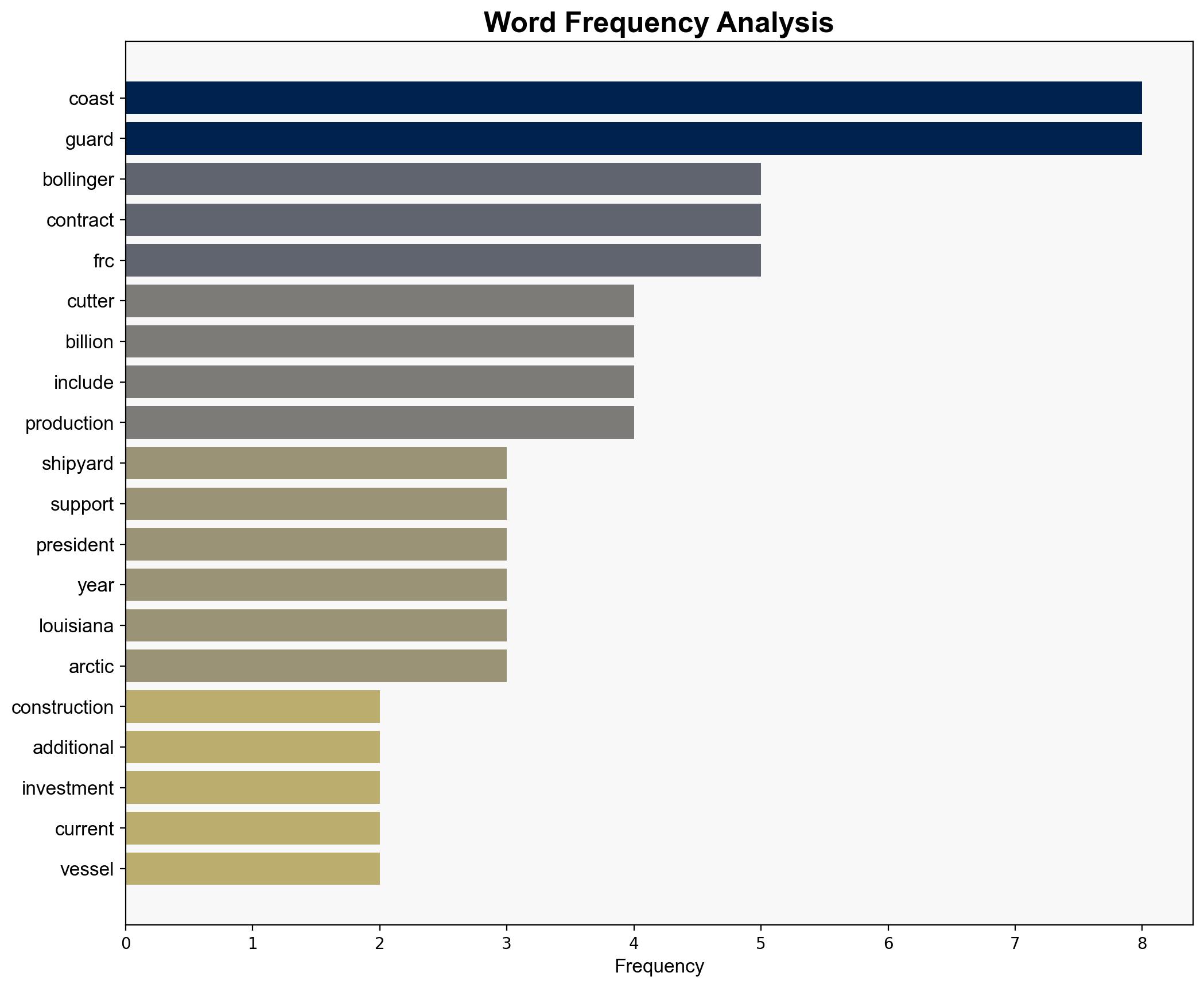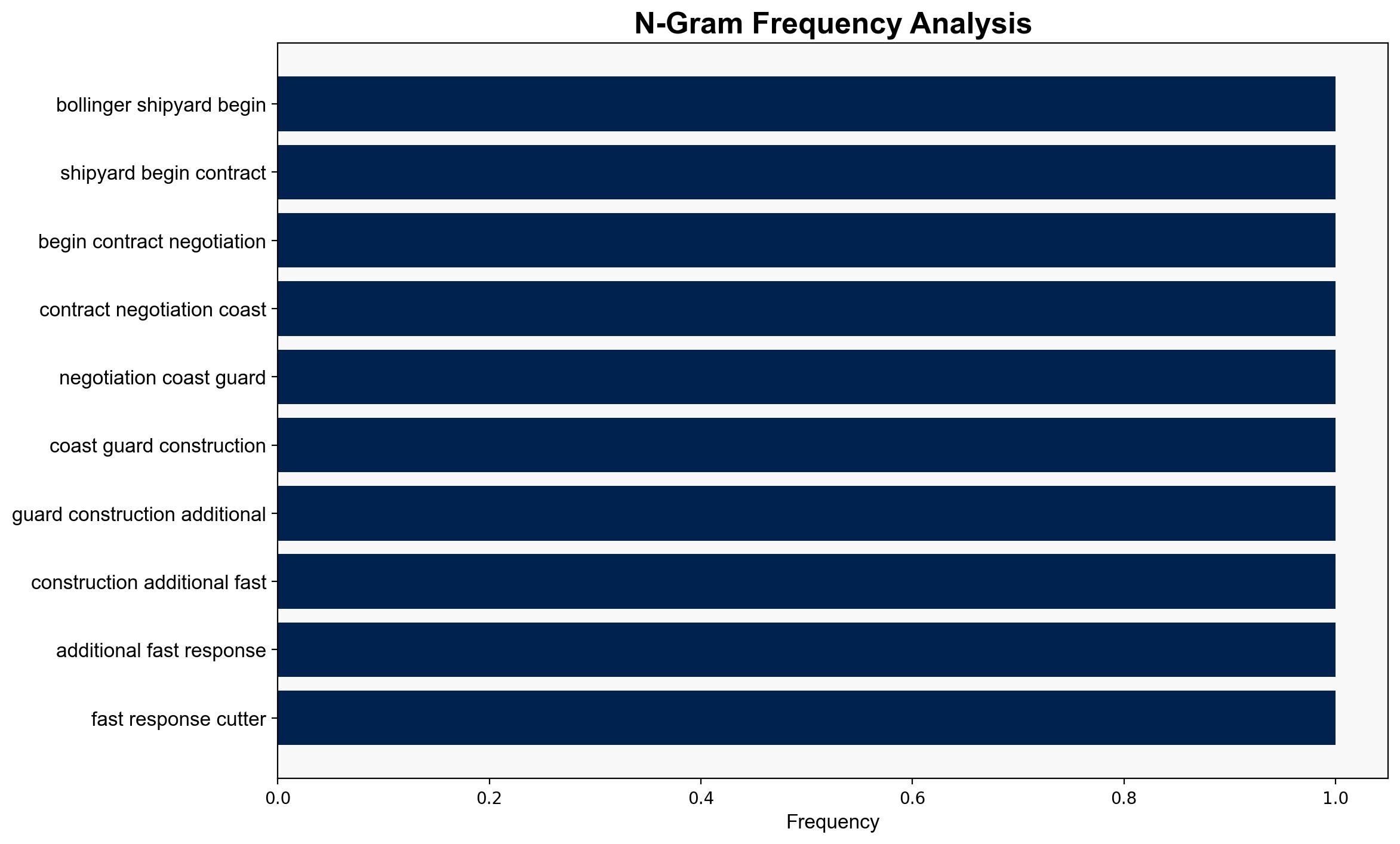Bollinger Begins Contract Talks to Extend Fast Response Cutter Program – gcaptain.com
Published on: 2025-07-30
Intelligence Report: Bollinger Begins Contract Talks to Extend Fast Response Cutter Program – gcaptain.com
1. BLUF (Bottom Line Up Front)
The most supported hypothesis is that Bollinger Shipyards’ contract negotiations with the Coast Guard are primarily driven by strategic economic and national security interests, with a high confidence level. The recommended action is to monitor the negotiations closely for shifts in U.S. maritime capabilities and potential geopolitical implications, particularly in the Arctic region.
2. Competing Hypotheses
1. **Economic and National Security Motivation**: The contract negotiations are primarily driven by the need to bolster U.S. maritime capabilities in response to increasing geopolitical tensions, particularly in the Arctic, while simultaneously providing economic benefits to the U.S., especially in Louisiana.
2. **Political and Economic Posturing**: The negotiations are largely influenced by political motivations to showcase economic growth and job creation, with less emphasis on actual strategic maritime needs.
Using ACH 2.0, the first hypothesis is better supported due to the explicit mention of strategic needs such as countering Russian and Chinese presence in the Arctic and the historical economic impact of the program.
3. Key Assumptions and Red Flags
– **Assumptions**: It is assumed that the U.S. government will continue to prioritize maritime security and economic growth in Louisiana. Additionally, it assumes that geopolitical tensions in the Arctic will persist.
– **Red Flags**: The potential for political motivations overshadowing strategic needs could lead to misallocation of resources. The lack of detailed information on the specific terms of the contract and the absence of independent verification of economic impact claims are also concerning.
4. Implications and Strategic Risks
The extension of the Fast Response Cutter program could enhance U.S. maritime security capabilities, particularly in the Arctic, where geopolitical tensions are rising. However, there is a risk of resource misallocation if political motivations dominate strategic needs. Economic benefits are likely to be concentrated in Louisiana, potentially leading to regional economic disparities. The program’s success could set a precedent for future defense contracts, impacting U.S. shipbuilding policies.
5. Recommendations and Outlook
- Monitor the progress of contract negotiations and assess their alignment with strategic maritime needs.
- Engage in diplomatic efforts to address Arctic tensions, leveraging enhanced maritime capabilities as a bargaining tool.
- Scenario Projections:
- Best Case: Successful contract extension leads to enhanced U.S. maritime security and significant economic growth in Louisiana.
- Worst Case: Political motivations lead to resource misallocation, undermining strategic maritime capabilities.
- Most Likely: A balanced outcome where economic and strategic interests are both addressed, albeit with some political influence.
6. Key Individuals and Entities
– Ben Bordelon
– Kevin Lunday
– Jeff Landry
– Bollinger Shipyards
– Coast Guard
– Rauma Shipyards
– Seaspan Shipyard
– Aker Arctic Technology
7. Thematic Tags
national security threats, maritime security, economic development, geopolitical tensions, Arctic strategy





